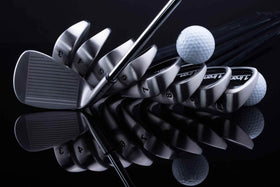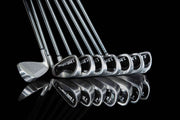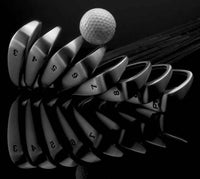Golf Ball Insight and Comparison
by David Lake
Golf balls are available in many different brands and types. A few of the different types include one piece, two piece, various compressions, numerous cover materials, and dozens of different dimple patterns. The plethora of differing types of golf balls and the dozens of brands on the market makes choosing one very difficult.
I would like to share a link with our Newsletter subscribers to a website where the specifications of virtually every golf ball on the market are listed along with testing results: click here: Golf Ball Comparison
I have personally found the information on that site to be of immense value in determining the correct golf ball for any golfer.
A very important point is that once you have decided upon a particular ball for your game – stick with it. For years I have stated that the most important consideration in golf is consistency, and this applies to your golf clubs, your swing, and most importantly the golf ball you use. Every different type or brand of golf ball will feel and react differently when you strike it producing varying trajectories, distance, spin rates, and so forth. If you constantly switch from one brand/type of ball to another, or heaven forbid you pull out a water ball during a round, you are eliminating consistency from your game. This is probably most important when you are on or around the green. No two brands/types of golf ball will feel or roll the same and there is absolutely no way to develop a consistent chipping or putting stroke if there is no consistency as to the golf ball you use. Personally, when I receive free sleeves of balls at golf outings or when I get boxes of golf balls as Christmas presents I just re-gift them.
Another point that not only has to do with this subject but course etiquette as well, throw your ball retriever in the trash (my brother-in-law has had to have his ball retriever re-gripped twice). Not only does it infuriate the group behind you when the round of golf has turned into a fishing trip, but a golf ball that has been sitting at the bottom of a pond for any length of time is completely worthless. This also applies to those golfers who find a few balls at the edge of the woods and then turn the round of golf into an Easter egg hunt, the golf ball is worthless and next time just stay home.
After you decide which type/brand of golf ball to use there are a couple of things that you can do with the ball that will automatically eliminate a few strokes from your game:
- Check for roundness.
- Determine the center of gravity of the ball.
Most golf stores sell a roundness gauge which is nothing more than a square piece of metal that has a hole cut in the center slightly larger than the diameter of a golf ball. You place the ball in the gauge and then rotate it to test if the ball is out of round. I will tell you from personal experience that at least one new golf ball out of twenty will be out of round. Also, most golf balls will go out of round after only one round of golf. You can imagine how a ball out of round will affect your putting.
The second point is that the weight of a golf ball is never centered and the ball will always be heavier on one side than the other. This means that when the ball flies through the air or rolls across the green it will tend to move in the direction of its weight mass, either to the right or left. If you have ever hit a perfect straight-in putt and the ball moves to the right or left by the time it gets to the cup then you know what I am talking about. Again, most golf stores sell a gadget called a “Check-Go” or similar item for about $25 that you can use to determine the center of gravity of a golf ball. It looks like a small can with a round plastic cap on top. You remove the cap and place the golf ball on a holder that is located on the top of the can. After replacing the cap you press a button and the ball holder starts to spin very rapidly which forces the heavier portion of the ball to the outside due to centrifugal force. By making a mark on the top of the ball you can now determine the proper alignment for your putt or tee shot by having the mark face towards you during your stroke. This aligns the heavy portion of the ball so that when it rolls or spins it goes end-over-end and does not influence a right or left break.










